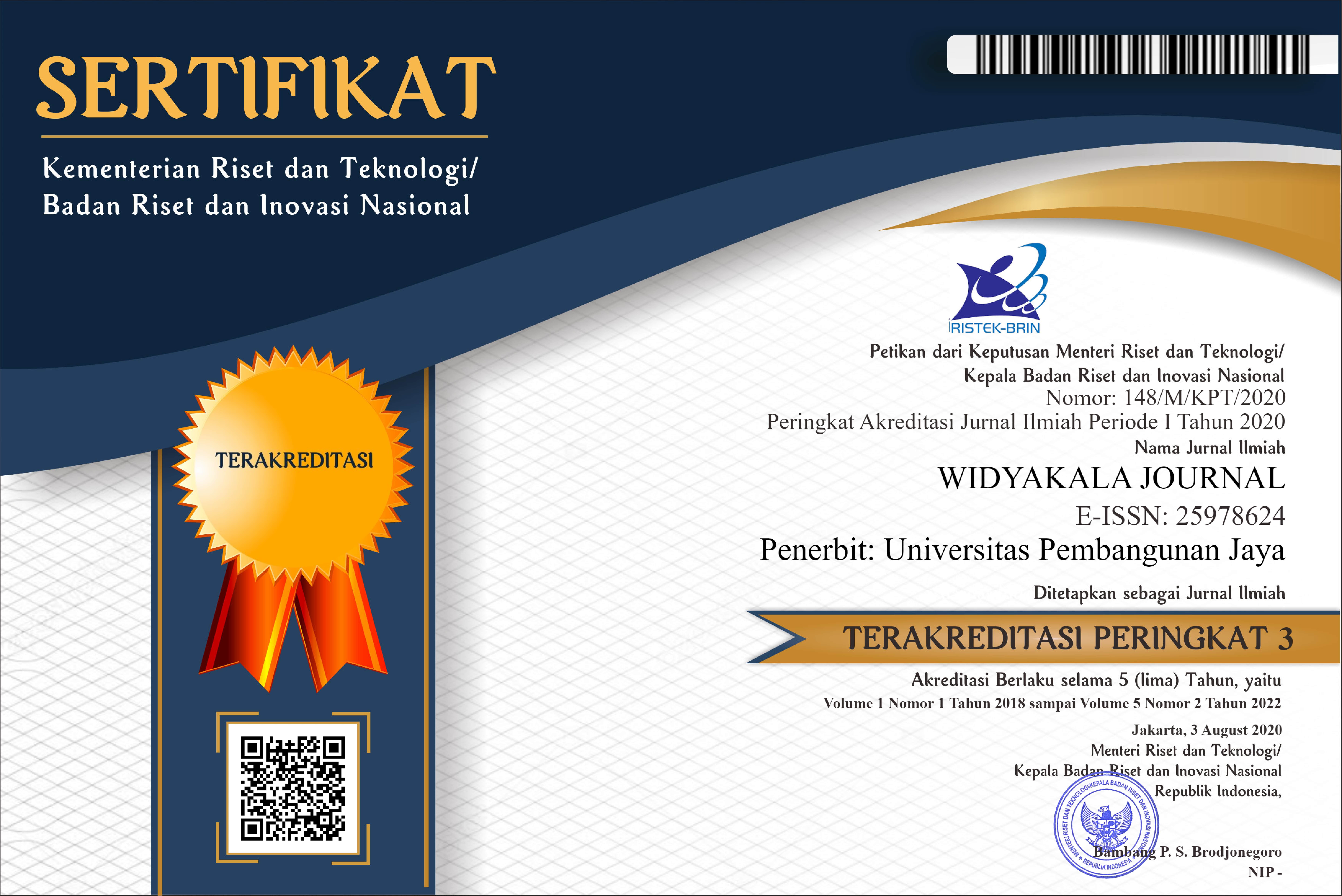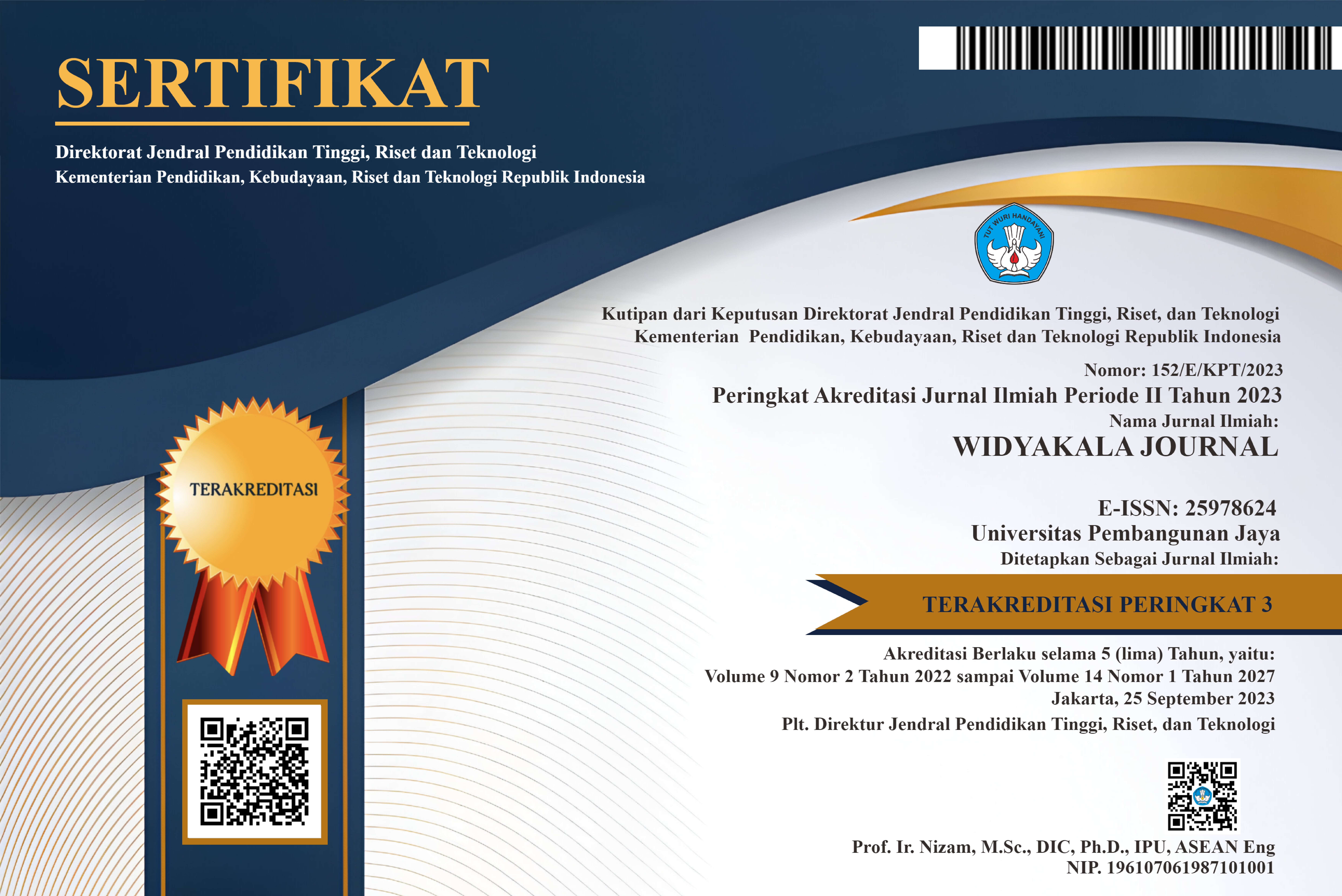Updated, December 20th, 2023
A Qualitative Inquiry on Academic Social Identity A Case Study on Students of Department of Psychology Universitas Pembangunan Jaya
Abstract
Keywords
Full Text:
PDFReferences
Barnet, R. (2006). Being and becoming: a student trajectory. International journal of lifelong education. 15, 2, 72-84. https://doi.org/10.1080/0260137960150202
Bliuic, A., Ellis, R.A., Goodyear, P. & Hendres, D.M. (2011). Understanding student learning in context: Relationships between university students’ social identity, approaches to learning, and academic performance. European Journal of Education 26, 417-433.
Bliuic, A., Goodyear, P. & Ellis, R.A. (2017). The role of students’ social identities in fostering high-quality learning in higher education. In Mavor, K.I, Platow, M.J & Bizumic, B. (editors). Self and social identity in educational context. New York: Routledge.
Damono, S.J., Hardianto, H. & Mardiyanto, H. (1996). Mempertimbangkan sastra Jawa. Semarang: Yayasan Adhigama.
Eatough, V. & Smith, J.A. (2017). Interpretative phenomenology analysis. In Willig, C. & Stainton-Rogers, W. (editors). Handbook of Qualitative Psychology. 2nd edition. London: Sage.
Geenaway, K., Amiot, C.E., Louis, W.R. & Bentley, S.V. (2017). The role of psychological need satisfaction in promoting student identification. In Mavor, K.I, Platow, M.J & Bizumic, B. (editors). Self and social identity in educational context. New York: Routledge.
Henderson, H., Bathmaker, A., & Stevenson, J. (2018). Introduction: Why possible selves and higher education? In Henderson, H., Stevenson, J. & Bathmaker, A. (editors). Possible selves and higher education: New interdisciplinary insights. Research into Higher Education. New York: Routledge.
Himpunan Psikologi Indonesia (HIMPSI) (2010). Kode Etik Psikologi Indonesia. Jakarta: HIMPSI.
Maunder, R. et. al. (2013). Listening to student voices: Student researchers exploring undergraduate experiences of university transition. Higher education, 66, 139-152.
Mathikithel, M. & Wood, L. (2019). Youth as participatory action researchers: Exploring how to make school a more enabling space.
Educational research for social change. 8, 2, 77-95.
McGeough, J. (2017). Transition into higher education : Is the development of an academic social identity in psychology
students important to achievement? Doctoral thesis. Liverpool John Moores University.
Mirra, N., Garcia, A. & Morrell, E. (2016). Doing youth participatory action research: Transforming inquiry with researchers, educators and students. New York: Routledge.
Palibroda, B. et. al. (2009). A practical guide to photovoice: Sharing pictures, telling stories and changing communities. Winnipeg:
Prairie Women’s Health Center of Excellence.
Permana, R. et. al. (2017). Gambaran krisis psikologis mahasiswa tingkat pertama program sarjana Universitas Islam Bandung. Schema (Journal of Psychological Research) 3, 2, 92-103.
Sari, N., Tarsono, Kurniadewi, E. (2016). Pengaruh status identitas terhadap orientasi masa depan area pekerjaan. Psympathic: Jurnal Ilmiah Psikologi 3, 1, 121-138.
Shawn, E. (1999). A guide to the qualitative research process: Evidence from a small firm study. Qualitative Market Research: An International Journal 2, 2, 1-12.
Smyth, L., Mavor, K.I., Platow, M.J. & Grace, D. M. (2017). Understanding social identity in education: the modifying role of perceived norms. In Mavor, K.I, Platow, M.J & Bizumic, B. (editors). Self and social identity in educational context. New York: Routledge.
DOI: https://doi.org/10.36262/widyakala.v7i2.303
Refbacks
- There are currently no refbacks.
Copyright (c) 2020 WIDYAKALA: JOURNAL OF PEMBANGUNAN JAYA UNIVERSITY

This work is licensed under a Creative Commons Attribution-ShareAlike 4.0 International License.
Redaksi Jurnal Widyakala
Lembaga Penelitian dan Pengabdian Kepada Masyarakat (LP2M)
Universitas Pembangunan Jaya
Jalan Cendrawasih Raya Blok B7/P, Sawah Baru, Ciputat, 15413
Telp : 021-7455555 ext 1311
widyakala.journal@upj.ac.id


















